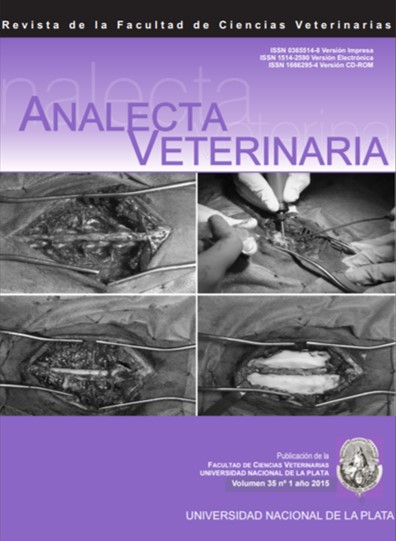Diagnóstico de leptospirosis mediante técnicas moleculares: ventajas y limitaciones en Medicina Veterinaria
DOI:
https://doi.org/10.24215/15142590ep.%2026-38Keywords:
diagnóstico veterinarioAbstract
Leptospirosis is an emerging worldwide zoonosis caused by pathogenic spirochaetes of the genus Leptospira. The disease is of great importance both economically and for the public health. The diagnosis of leptospirosis is complex and usually done by bacteriological and serological methods. In recent decades, the application of molecular techniques such as Polymerase Chain Reaction (PCR) has achieved the diagnosis of many diseases of microbial etiology, including leptospirosis. The aim of this study was to review PCR protocols published in veterinary medicine to highlight the advantages and disadvantages of this applied technique to clinical diagnosis and epidemiological studies. Although the application of PCR proved to be a useful complement to the referenced methods, additional studies are needed regarding the use of it for the diagnosis of disease in animals. We conclude that the interpretation of the results obtained with the PCR technique must include an internal amplification control for each protocol and must choose nested PCR techniques or real time, due to its higher sensitivity and specificity.
Downloads
Metrics
Published
How to Cite
Issue
Section
License
Authors retain the copyright and assign to the journal the right of the first publication, with the with the terms of the Creative Commons attribution license. This type of license allows other people to download the work and share it, as long as credit is granted for the authorship, but does not allow them to be changed in any way or used them commercially.

Analecta Veterinaria by School of Veterinary Sciences, National University of La Plata is distributed under a Creative Commons Attribution-NonCommercial-NoDeriv 4.0 International License.

























